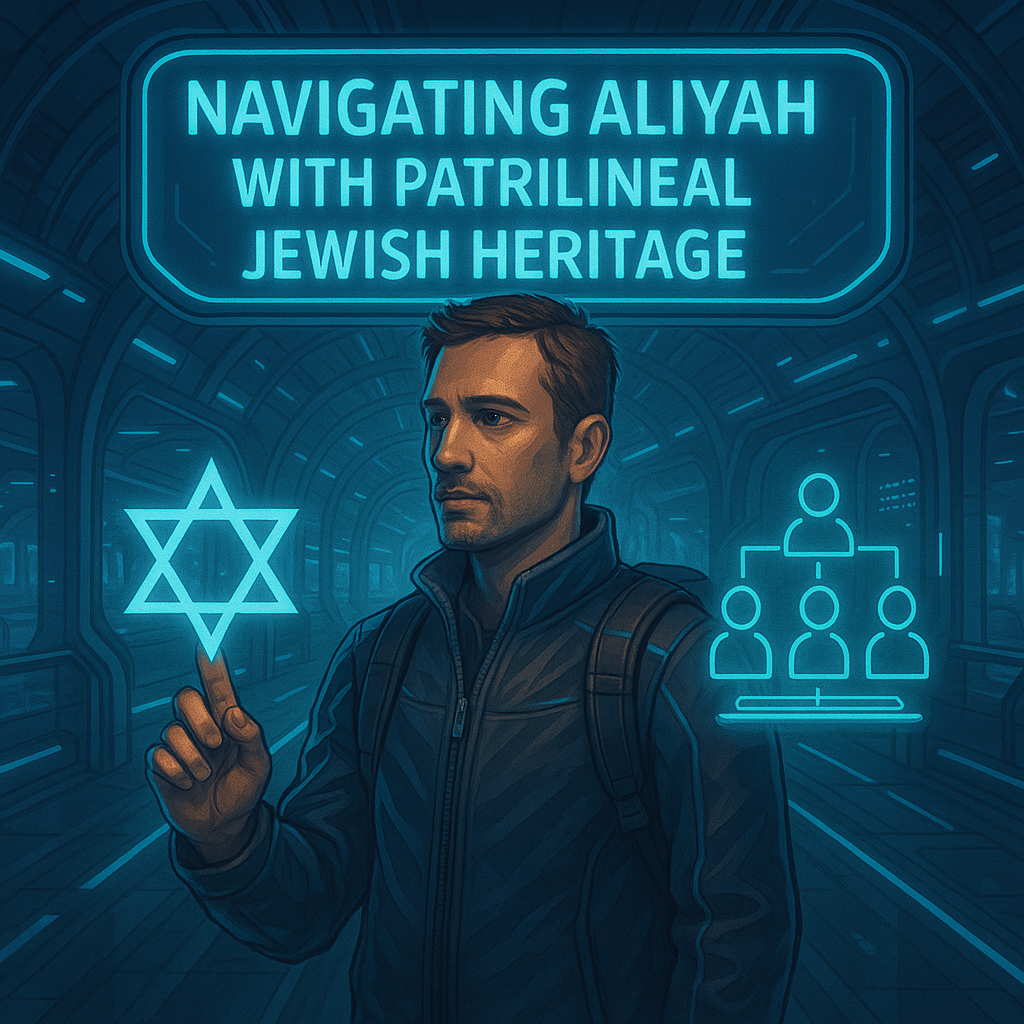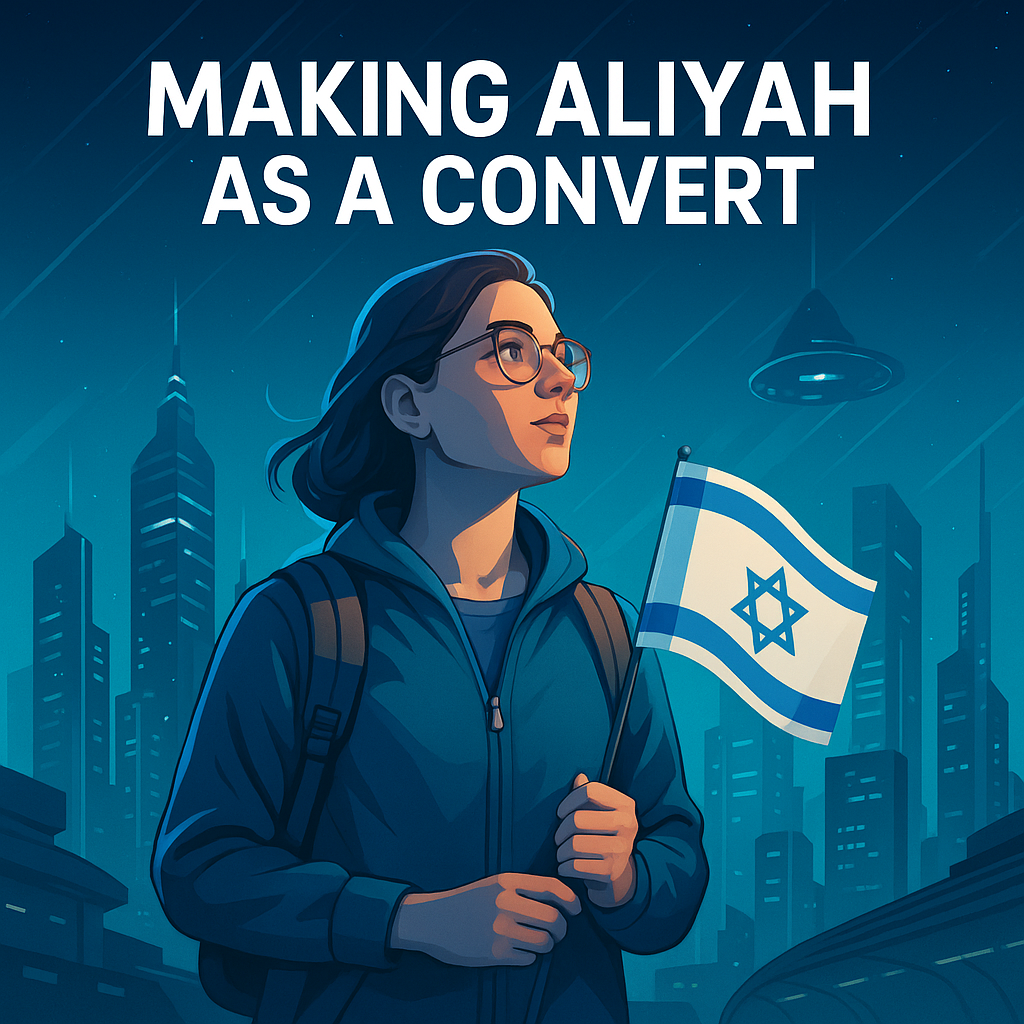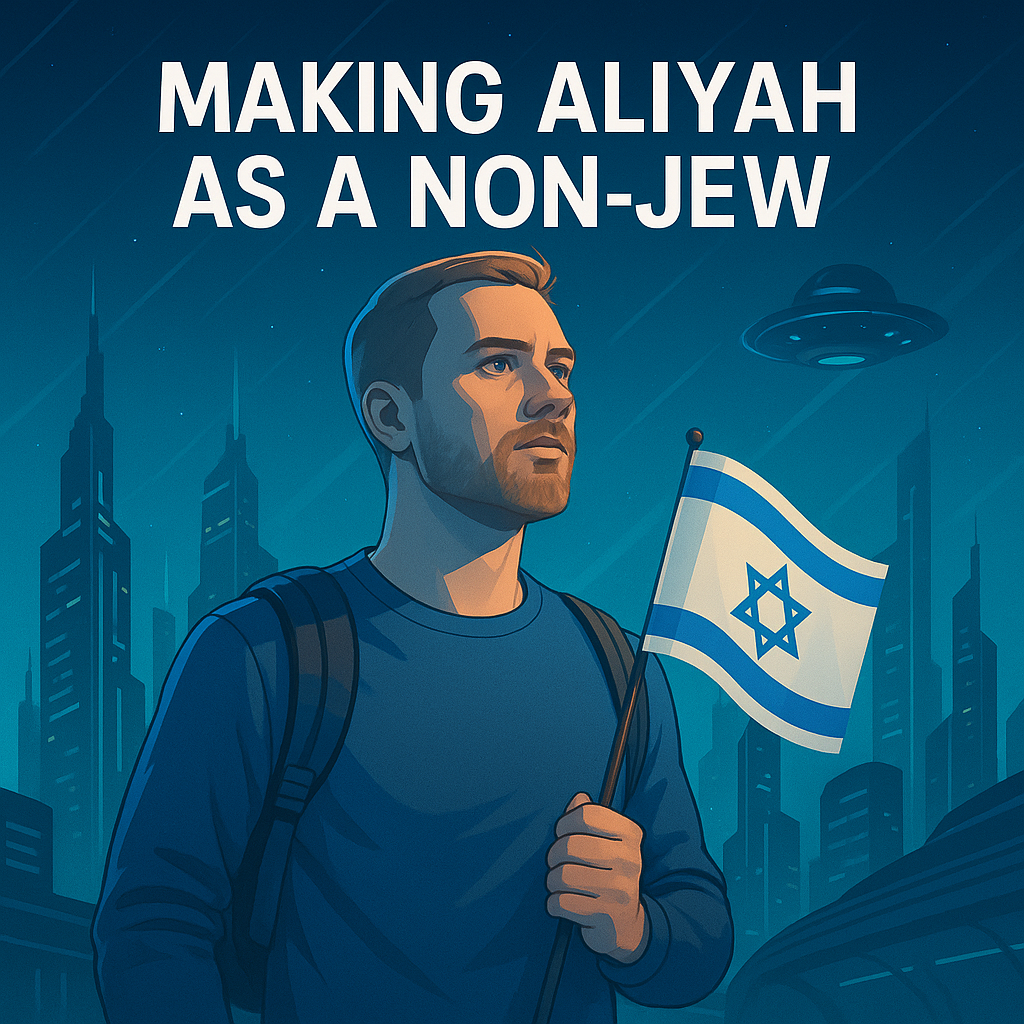Introduction: The Patrilineal Paradox
For individuals with a Jewish father but a non-Jewish mother, the journey to Israeli citizenship presents unique challenges and considerations. While traditional Jewish law (halacha) defines Jewish identity as passing through the maternal line, Israel’s Law of Return has evolved to include broader criteria for those with Jewish heritage. This creates what many experience as the “patrilineal paradox” – being considered Jewish in some contexts but not others, particularly when seeking to make Aliyah.
This article explores the realities, challenges, and practical pathways for those with patrilineal Jewish descent who wish to immigrate to Israel and build their lives in the Jewish homeland.
Understanding the Legal Framework
The Law of Return: Amendment and Expansion
Israel’s Law of Return, established in 1950, originally granted every Jew the right to immigrate to Israel. A significant amendment in 1970 expanded eligibility to include:
- Children of a Jewish parent (father or mother)
- Grandchildren of a Jewish person (up to third generation)
- Spouses of Jews or of children/grandchildren of Jews
This amendment specifically opened the door for individuals with Jewish fathers but non-Jewish mothers to make Aliyah, even though they are not considered Jewish according to Orthodox halachic standards.
The Critical Distinction: Citizenship vs. Religious Status
It’s essential to understand the fundamental distinction that exists in Israel between:
Civil Status: For immigration and citizenship purposes, the State of Israel recognizes patrilineal Jews under the Law of Return. You can become an Israeli citizen with full civil rights.
Religious Status: For matters governed by religious authorities (primarily marriage, divorce, and burial), only maternal Jews or those who have undergone Orthodox conversion are recognized as Jewish.
This division creates practical implications that anyone with patrilineal Jewish descent should consider before making Aliyah.
The Practical Impact on Daily Life
Areas Where Patrilineal Descent Doesn’t Matter
In many aspects of Israeli life, your status as a patrilineal Jew has no practical impact:
- Citizenship rights: Full and equal citizenship
- Professional opportunities: All career paths remain open
- Education: Access to all educational institutions
- Healthcare: Complete access to Israel’s healthcare system
- Military service: Eligible to serve in the IDF (and expected to do so)
- Participation in secular holidays: Full participation in Independence Day, Memorial Day, etc.
- Cultural identification: Freedom to identify and live culturally as Jewish
Areas Where Challenges May Arise
The religious status distinction primarily affects three major life events:
- Marriage: The Rabbinate, which controls Jewish marriage in Israel, does not recognize patrilineal Jews as Jewish. This means you cannot have an official Jewish wedding in Israel without conversion.
- Divorce: Similarly, Jewish divorce proceedings would not apply without recognized Jewish status.
- Burial: There may be limitations on burial in Jewish cemeteries, though there are now many civil burial alternatives.
Additionally, some may experience more subtle social challenges:
- Questions about your Jewish identity in certain communities
- Potential feelings of being “not Jewish enough” in some contexts
- Navigate explanations about your status in religious settings
Pathways and Solutions
For those with patrilineal Jewish descent, several pathways exist for making Aliyah and navigating life in Israel:
1. Aliyah Under the Law of Return As-Is
Many patrilineal Jews choose to make Aliyah under the existing Law of Return provisions without pursuing conversion. This pathway means:
- Full Israeli citizenship and civil rights
- Potentially navigating the religious status challenges mentioned above
- Finding workarounds for religious status issues (such as civil marriage abroad, which Israel recognizes)
2. Conversion Before or After Aliyah
Some choose to undergo conversion to Judaism, which can be pursued either:
Before Aliyah:
- Orthodox conversion abroad (widely recognized in Israel)
- Conservative or Reform conversion (recognized for Aliyah but not by the Rabbinate)
After Aliyah:
- Orthodox conversion through the Israeli Rabbinate (most widely recognized)
- Conservative or Reform conversion in Israel (not recognized by the Rabbinate)
- Private Orthodox conversion (varies in recognition)
The conversion process typically involves:
- Period of Jewish study (typically 1-2 years)
- Adoption of Jewish practices and community integration
- Appearance before a Beit Din (rabbinic court)
- Immersion in a mikveh (ritual bath)
- For men, circumcision or hatafat dam brit (symbolic drawing of blood if already circumcised)
3. Civil Marriage Solutions
For marriage without conversion, options include:
- Marriage abroad (typically in Cyprus, Prague, or other accessible locations)
- Common-law partnership recognition
- Reform or Conservative ceremonies (meaningful but not officially recognized)
4. Community Integration Strategies
Regardless of your chosen pathway, these strategies can help with integration:
- Connect with communities that are welcoming to patrilineal Jews
- Consider cities with larger secular or progressive populations
- Join organizations for immigrants with similar backgrounds
- Build a support network that respects your identity journey
Personal Experiences and Case Studies
Sarah’s Journey: Aliyah Without Conversion
Sarah, whose father is Jewish and mother is not, made Aliyah from the United States in 2018. She shares:
“I’ve always identified as Jewish culturally and spiritually, even though I know I’m not considered Jewish by Orthodox standards. Making Aliyah was a statement that Israel is where I belong, regardless of the technicalities of my birth. Day-to-day, my status rarely comes up – I work, have friends, and live a normal Israeli life. When I decided to get married, my partner and I had a beautiful ceremony with a Reform rabbi in Israel, then flew to Cyprus for the civil ceremony that Israel recognizes. It added complexity but didn’t diminish the meaning for us.”
David’s Path: Choosing Conversion After Aliyah
David made Aliyah from Argentina with patrilineal Jewish heritage but later decided to pursue Orthodox conversion:
“I initially wasn’t planning to convert. I was Jewish enough for the Law of Return, and that seemed sufficient. But after living in Israel for two years, I found myself wanting to fully participate in Jewish life without asterisks or explanations. The conversion process was challenging – a year of intensive study, changing many habits, and scrutiny from the Beit Din – but ultimately rewarding. Now there’s a simplicity to my Jewish identity that I didn’t have before.”
Michael’s Experience: The Community Factor
Michael made Aliyah from Canada and found that location within Israel significantly impacted his experience:
“I originally settled in a more traditional community where my status sometimes raised eyebrows or required explanation. Moving to Tel Aviv changed everything. In this more secular environment, most people care more about who you are than the technicalities of your birth. I’ve found a Reform community that fully embraces me, and my patrilineal status rarely comes up in daily life.”
Preparing for Aliyah with Patrilineal Descent
Documentation Requirements
If you’re applying for Aliyah with patrilineal Jewish heritage, you’ll need:
- Standard Aliyah documentation (passport, birth certificate, etc.)
- Clear documentation of your father’s Jewish status (his birth certificate, parents’ ketubah, etc.)
- Your parents’ marriage certificate
- Letter explaining your Jewish connection and background
- Documentation of any Jewish education, Bar/Bat Mitzvah, synagogue membership
- If applicable, documentation from a recognized Jewish community confirming your involvement
Navigating the Interview Process
During your Aliyah interview, be prepared to:
- Clearly explain your Jewish background and connection
- Discuss your understanding of your status in Israel
- Express your motivations for making Aliyah
- Answer questions about your Jewish identity and practice
- Demonstrate knowledge about the implications of patrilineal descent in Israel
Pre-Aliyah Considerations
Before finalizing your decision, consider:
- Researching communities where you’ll feel most comfortable
- Connecting with others who have made Aliyah with patrilineal descent
- Understanding the practical implications for your specific situation
- Exploring whether conversion is something you might want to pursue
- Planning for any religious status issues that might affect you personally
The Changing Landscape
Evolving Attitudes and Advocacy
The situation for patrilineal Jews in Israel continues to evolve, with several developments worth noting:
- Growing recognition of the challenges faced by immigrants with patrilineal descent
- Advocacy organizations working to bridge religious status gaps
- Increasing acceptance in many Israeli communities
- Expanded civil burial options
- Greater public discussion about religious pluralism
Reform Movements and Recognition
Reform and Conservative Judaism in Israel recognize patrilineal Jews, providing:
- Welcoming religious communities
- Meaningful lifecycle ceremonies
- Spiritual homes for those not recognized by the Rabbinate
- Advocacy for greater recognition
Conclusion: Embracing Complexity
Making Aliyah with patrilineal Jewish descent means embracing a certain complexity in your Jewish identity and status in Israel. Yet thousands have walked this path successfully, finding fulfilling lives in the Jewish homeland despite the challenges.
The key to a successful journey lies in approaching Aliyah with:
- Clear understanding of both the opportunities and challenges
- Realistic expectations about religious status implications
- Research into communities and support systems
- Flexibility in navigating the unique aspects of Israeli society
- Pride in your Jewish heritage and connection
While the path may include additional considerations, for many patrilineal Jews, the opportunity to live in the Jewish homeland and participate in the ongoing story of the Jewish people makes the journey worthwhile, regardless of the complexities involved.
Israel, with all its contradictions and complexities, continues to be a homeland for the Jewish people in the broadest sense – including those whose Jewish heritage comes through their fathers, not their mothers.
Resources and Support
Organizations Supporting Patrilineal Jews:
- ITIM: The Jewish Advocacy Center
- Israel Religious Action Center
- Ne’emanei Torah Va’Avodah
- Reform and Conservative movements in Israel
Communities with Stronger Support:
- Tel Aviv (particularly central and northern neighborhoods)
- Haifa
- Modi’in
- Jerusalem (certain neighborhoods)
- Reform and Conservative congregations throughout Israel
Additional Resources:
- Online forums for patrilineal Jews making Aliyah
- Social media groups for those navigating similar journeys
- Nefesh B’Nefesh resources for special status situations
- Legal advisors specializing in status issues


